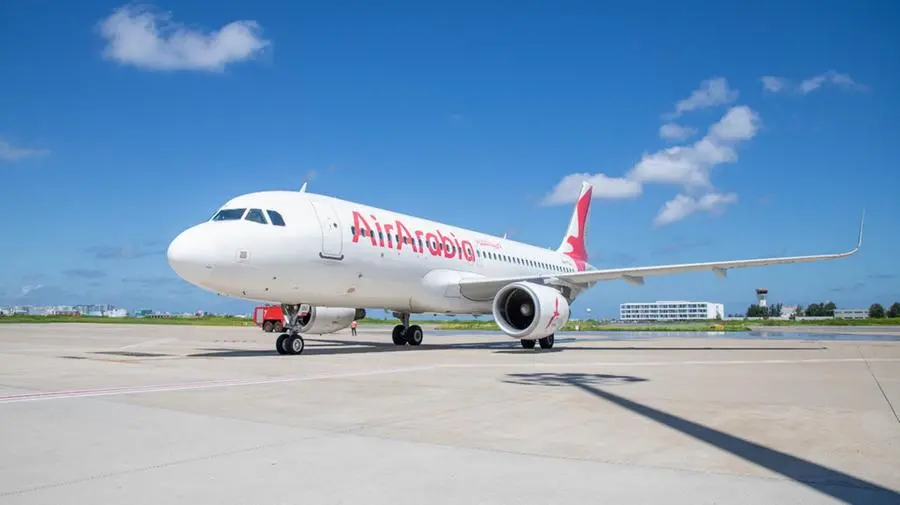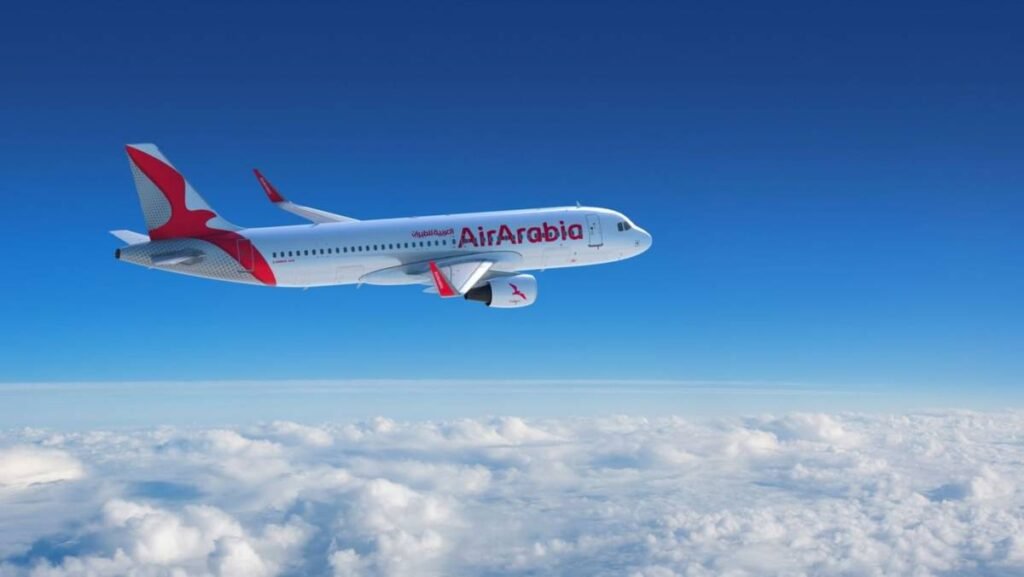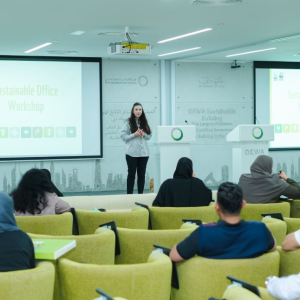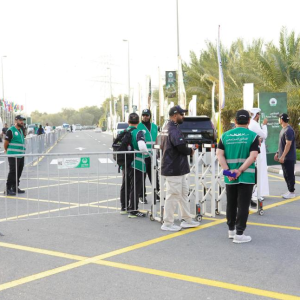The skies above the Middle East are buzzing with excitement as Air Arabia, the first and largest low-cost carrier in the region, officially announced the resumption of its highly anticipated Sharjah–Damascus flights. This route, which has been suspended for years due to regional instability and airspace restrictions, will not just return—but come back even stronger with double daily flights starting July 10, 2025.
For travelers, business owners, and thousands of Syrians living in the UAE, this move signifies more than a simple flight option. It represents a reconnection to families, the revival of long-interrupted trade routes, and a fresh wave of optimism as regional air travel emerges from the shadows of past conflicts. With Air Arabia’s proven record of affordable, reliable, and customer-focused service, the decision to relaunch this route is seen as a powerful symbol of rebuilding bridges and reuniting communities.
Reconnecting Families and Communities
The UAE is home to one of the largest Syrian expatriate communities in the Gulf, many of whom have been longing for easier and more frequent access to their homeland. For years, convoluted routes and infrequent services made travel back home stressful and costly. The introduction of two daily flights by Air Arabia is poised to transform these journeys into smooth, affordable experiences.

Beyond family reunions, there is also an emotional undertone to this reconnection. Many Syrians have spoken about the psychological relief of knowing that a direct flight to Damascus is just a few clicks away. For parents wanting to take their children to see grandparents, for students visiting during school breaks, or for business owners checking on investments and properties in Syria, the benefits are tangible and immediate.
Travel agencies in the UAE have already started reporting a spike in inquiries and bookings for the Damascus route. The double daily service allows for flexible itineraries, enabling travelers to plan short visits or extended stays depending on their needs.

A Strategic Move Amid Regional Shifts
Air Arabia’s decision to reinstate the Sharjah–Damascus route comes at a time when regional airspace is gradually reopening. Geopolitical shifts and renewed diplomatic ties have encouraged airlines to reconsider routes once deemed too risky or commercially unviable. Recent months saw multiple Gulf carriers, including flydubai and Emirates, announce or resume services to destinations in Syria, Iraq, and beyond.
This broader normalization of airspace, following years of partial suspensions and reroutings—particularly around Iran and Iraq—has enabled Air Arabia to not only restore this crucial link but to do so with a bold double daily schedule.
The airline’s move is also strategically timed to capture the summer travel season, traditionally the busiest period for family visits and regional tourism. This operational foresight positions Air Arabia favorably against other carriers looking to tap into the pent-up demand for flights between the Gulf and the Levant.
Enhancing Trade and Business Ties
While the emotional and social impacts are profound, the economic implications of resuming this route are equally significant. Syria, emerging from years of conflict, is steadily working to rebuild its economy and infrastructure. Re-establishing direct flight links with the UAE—a major regional economic powerhouse—opens doors for trade, investment, and business collaborations.
Exporters and importers are especially enthusiastic. The UAE is one of Syria’s largest trading partners, and smoother logistics through direct flights mean reduced costs, faster deliveries, and more reliable supply chains. Businesspeople who once had to endure roundabout journeys or rely on cargo-only services can now travel directly, inspect goods, and meet partners face-to-face with greater convenience.

Moreover, as Syria gradually re-engages with the international community, the symbolic importance of this route cannot be understated. It sends a message of confidence in the country’s trajectory and highlights the Gulf region’s commitment to supporting Syria’s reintegration into regional commerce and diplomacy.
Air Arabia’s Signature Experience
Passengers flying the Sharjah–Damascus route will enjoy Air Arabia’s modern fleet of Airbus A320 and A321 aircraft. These aircraft are known for their comfort and efficiency, embodying the carrier’s commitment to affordable yet quality service.
Onboard, travelers will benefit from:
SkyTime: A free, innovative in-flight entertainment system allowing passengers to stream content directly to their personal devices, creating a customized entertainment experience.
SkyCafe: An extensive menu with a variety of meal options, snacks, and beverages designed to cater to diverse tastes and dietary preferences.
Air Rewards: The carrier’s loyalty program that lets frequent flyers earn points redeemable for future flights, upgrades, and additional services.
These features, combined with Air Arabia’s well-regarded punctuality and customer service, promise a travel experience that prioritizes comfort, reliability, and value.
Supporting Tourism and Cultural Exchange
The re-establishment of direct flights also serves as a catalyst for cultural exchange and tourism. Syria, with its rich history and breathtaking archaeological sites, holds tremendous potential as a destination. Despite the challenges of recent years, sites like the Umayyad Mosque in Damascus, the ancient city of Palmyra, and Aleppo’s historic souks continue to attract the attention of adventurous travelers and cultural enthusiasts worldwide.
By simplifying access, Air Arabia contributes to the reawakening of Syria’s tourism industry, creating opportunities for local guides, hotels, restaurants, and artisans to benefit from renewed visitor flows. It also offers UAE residents and citizens a unique chance to explore a neighboring country with deep historical and cultural ties to the region.
Flexible Schedules for Modern Travelers
The double daily service is particularly advantageous for modern travelers who value flexibility. The two flight options per day allow passengers to choose timings that best fit their personal or business schedules. Early morning departures are ideal for those looking to make the most of their day upon arrival, while evening flights cater to travelers who prefer to fly after a day’s work.
The service is designed to be seamlessly accessible: tickets can be booked directly through Air Arabia’s official website (airarabia.com), via their call centers, or through trusted travel agencies across the UAE and Syria.
Responding to Market Demand
Air Arabia’s market-driven approach to route planning is evident in this decision. By listening to community feedback and analyzing travel trends, the airline identified strong latent demand for Sharjah–Damascus connectivity. The robust bookings and inquiries following the announcement confirm that the decision is resonating deeply with travelers.
Moreover, this move aligns with Air Arabia’s broader growth strategy, which includes expanding into underserved markets and solidifying its position as the preferred choice for affordable, reliable regional air travel. The reintroduction of Damascus adds another crucial link in Air Arabia’s already extensive network across the Middle East, North Africa, Asia, and Europe.
Rebuilding Trust and Confidence in Air Travel
For many, this relaunch is more than just a travel update—it’s a symbol of resilience. After years of uncertainty in the region’s aviation sector, the return of direct flights builds trust and restores confidence among passengers. It shows that airlines are once again prioritizing connectivity and that governments and aviation authorities are working towards stability and safety in regional skies.
This confidence is further strengthened by Air Arabia’s strong safety record and its adherence to international standards, factors that are increasingly important to travelers in a post-pandemic and post-conflict world.
Economic and Social Ripple Effects

The ripple effects of resumed flights extend far beyond airports. Local economies in Syria stand to benefit from increased spending by visitors, new job opportunities in tourism and aviation, and the revitalization of supporting industries such as transport, hospitality, and retail.
In the UAE, travel agencies, tour operators, and cargo handlers will also see a boost, as renewed traffic stimulates new business. Even sectors like telecommunications and banking often experience a positive impact, as more people reconnect across borders.
On a social level, stronger air links can contribute to healing and rebuilding fractured communities. By making it easier for Syrians abroad to return home and for visitors to experience the country firsthand, these flights play a part in stitching back the social and cultural fabric that conflict has frayed.
A Broader Vision for Regional Connectivity
Air Arabia’s move is part of a larger vision to expand and deepen regional air connectivity. Alongside the resumption of the Damascus route, the airline has also announced plans to restore services to other cities in Iraq and potentially extend operations in North Africa and Central Asia.
This focus on connectivity aligns with economic diversification strategies in Gulf countries, which aim to strengthen tourism, trade, and investment ties across the region. In this way, Air Arabia isn’t just flying planes; it’s building bridges—facilitating human connections, supporting economic resilience, and promoting cultural understanding.
Booking and Travel Details
Travelers eager to plan their journeys can find schedules, fare information, and booking options on Air Arabia’s website (airarabia.com). Additional information and assistance are also available through their dedicated call centers and network of travel partners.
The airline encourages early booking to secure preferred dates and benefit from promotional fares that are expected to attract high demand, especially during the initial weeks of service resumption.
Final Thoughts
The return of Air Arabia’s Sharjah–Damascus service is more than just another flight schedule update. It’s a story of hope, reconnection, and the promise of new beginnings. It underscores the human desire to stay connected, the resilience of businesses ready to rebuild, and the vital role that aviation plays in bridging not only physical distances but also emotional and cultural divides.
As planes start taking off this July, each flight will carry not just passengers but countless stories of reunions, ambitions, and renewed dreams. With Air Arabia leading the charge, the sky between the UAE and Syria looks brighter than it has in years.
Do follow UAE Stories on Instagram
Read More: Top VPNs That Still Work in Dubai Mid‑2025












